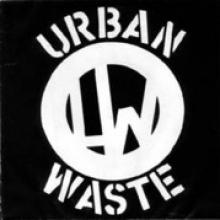But if these compilations didn’t exist, we’d either not have this music to listen to at all, or be necessitated to shell out some ridiculous prices to hear it. Rettman gets all that and spits it out in bits and pieces. More importantly, though, he’s got some historical (and personal) sense of the music.
Oddly, he doesn’t have too many negative comments on any of this sludge – thus the backwards gaze.
Granted, compilations like Killed By Death truck in high quality product. So, hearing a bit more praise for Urban Waste isn’t a bummer, although police brutality is – the act, not the song from the band’s 1982 Mob Style EP. That slab’s all boss sounds even if the guitar solos tossed in aren’t really distinguishable from each other. Either way, the Queens’ band was able to shift tempos relatively seamlessly. And in this genre, that’s one of the few technical things that can almost be quantified.
Terveet Kädet gets a pass from Rettman, which isn’t really all that surprising. Finnish bands – or Norwegian or Japanese – are generally revered for picking up on a style first announced somewhere else and touching it up a bit. TK isn’t too much different. See the aforementioned Discharge discussion. It’s all just surprising that the band didn’t blatantly exploit the formation of distinctive metal scenes. I suppose we can be thankful for that.
Philly’s YDI, though, is generally thought to have gone down that metal road. But SSD, as Rettman notes, did as well. Of course, being SSD grants you a great many things in life. Being YDI does not. Even still, YDI’s Black Dust isn’t even the worst metal album ever recorded. So turning hardcore into something that could potentially make you a dollar doesn’t seem like the worst thing in the world. I mean, we’re talking about bands included on a compilation examining a music only a few hundred thousand people cared about twenty years ago. Maybe trickle down economics’ll work if we give it another shot.
